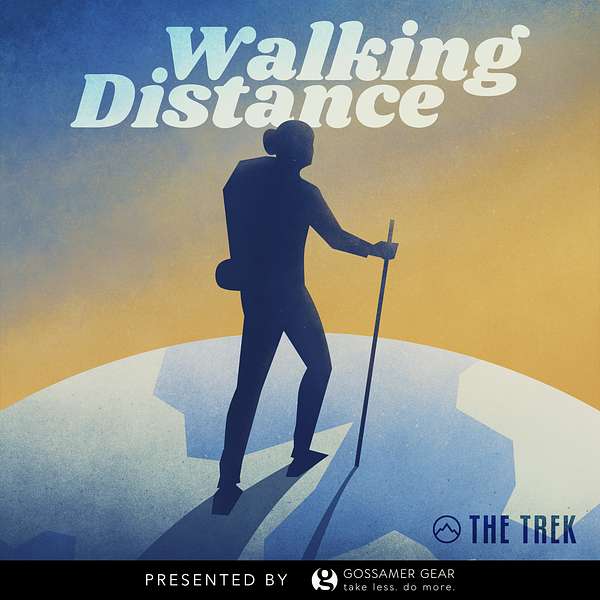
Walking Distance
Walking Distance
#20 | Bear Safety ft. Tom Smith
In this episode of Walking Distance presented by The Trek and hosted by Blissful Hiker (Alison Young), we are joined by Tom Smith, a professor of wildlife sciences at Brigham Young University in Utah. Initially Smith’s research specialities included bighorn sheep and caribou, but when he began working at Katmai National Park in Southwest Alaska, he shifted to studying the most common animal there: bears. In the last 20 years, Smith has conducted research in Alaska, India, and in bear country in the lower 48 states.
Blissful Hiker covers why it’s important to have bear deterrent, rules of thumb about making noise while on the trail, methods to bear-proof a campsite, and explains what conventional bear wisdom still holds true.
Garage Grown Gear discount code: Use code “distance10” to save 10% at garagegrowngear.com.
Gossamer Gear discount code: Use code “walkingdistance” to save 15% off your cart at GossamerGear.com.
Interview with Tom Smith
2:00 - Introduction to ‘bear country’ and Tom Smith
3:42 - What are your thoughts on Timothy Treadwell, and his involvement in Katmai National Park with bear environmentalism?
5:12 - Our podcast is for hikers and backpackers, and to help people feel safe and capable outdoors. One thing you’ve already mentioned is bear deterrent, so could you break down what bear spray is and how to use it best?
9:00 - I’ve read articles about people spraying bear spray around their tent, which is definitely not the correct use. Is there data on that?
12:00 - Does bear spray train bears to stay away from humans? Is there any data that bears might associate the pain of bear spray with humans if they experience it?
12:50 - I’m a bit embarrassed to share this story, but last July I was in Glacier National Park, and I hiked alone at dawn in bear country. I didn’t see any bears, but I was playing with fire, wouldn’t you say?
17:22 - Glacier rangers told me that bears are curious, and that bear bells and some other noises like singing might actually attract them. What do you know about that?
19:32 - People who go on long distance trails, for instance I was on the Continental Divide Trail, often hike alone. I wonder if there’s a rule of thumb about making noise if you’re alone and you want to ward bears off?
22:24 - You said something really interesting, that in Yellowstone or Glacier the bears are more aggressive than on the coastline of Alaska, for instance. Why is that?
26:53 - We’ve spoken a lot about food storage on Walking Distance, from cooking and eating away from where you camp, using a bear can, and pack away smelly items. But you’ve mentioned other things that aren’t as obvious, such as not using very smelly shampoo, and that gas canisters can attract bears.
33:47 - Let’s shift to bear encounters; as you’ve said, most bears are risk averse, and they don’t want to fight with us. But in the rare instance that a bear is charging you, what do you do?
36:50 - How do you bear-proof a campsite?
39:40 - Would you even use your bear-proofing methods in Montana?
41:40 - The most s